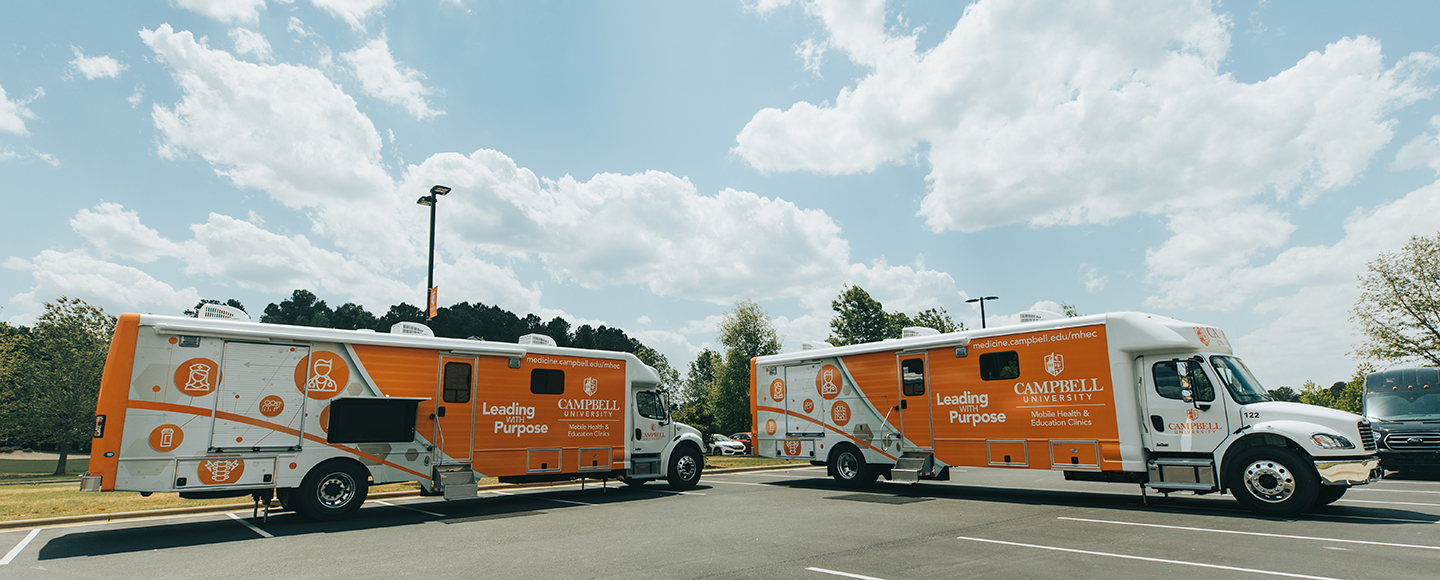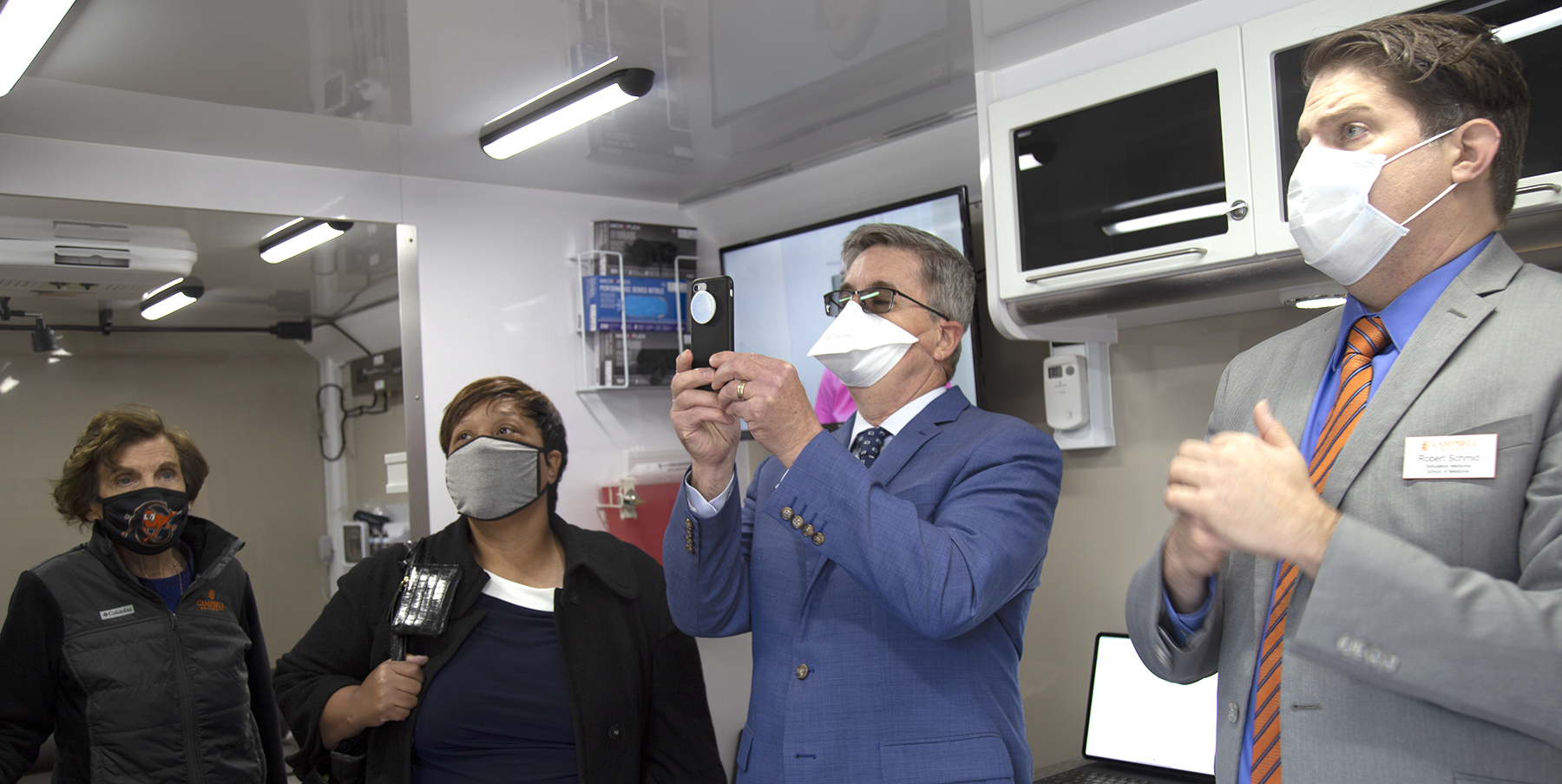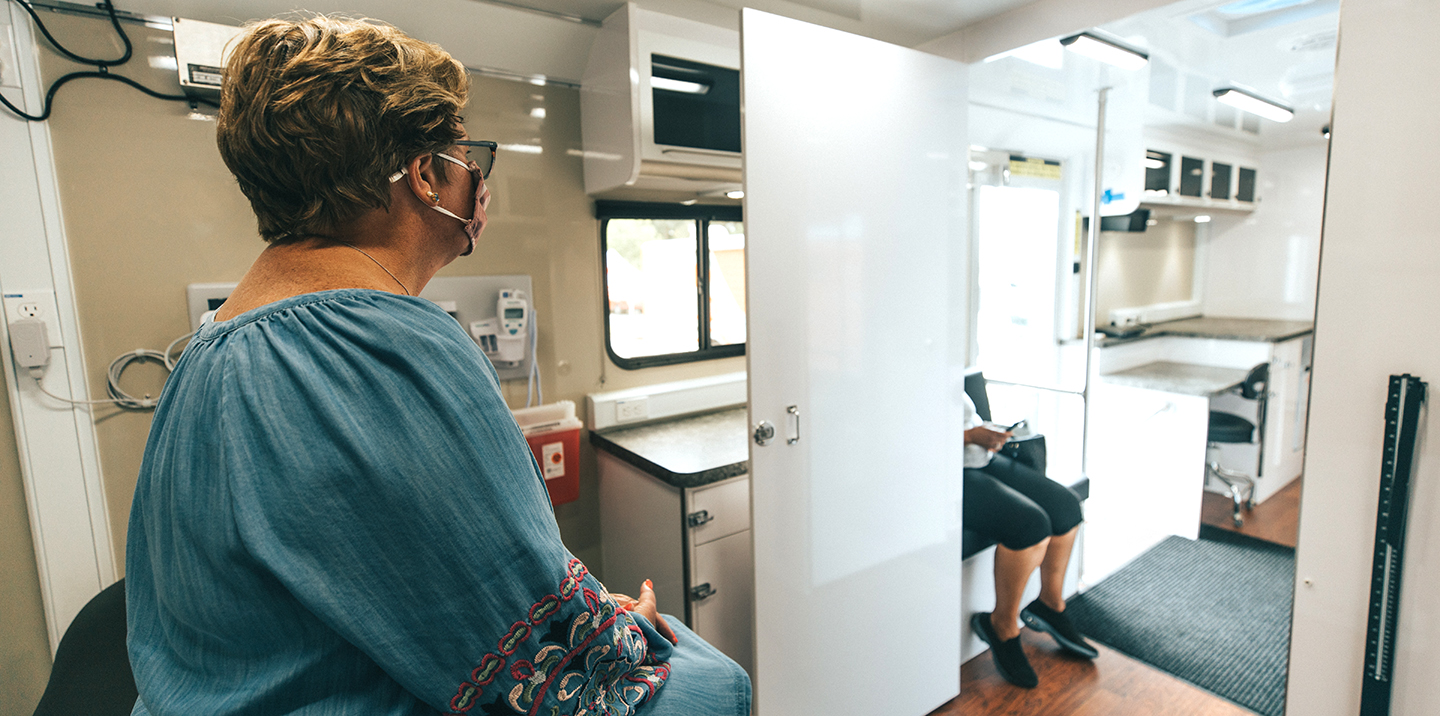In one of his first appearances as new dean of the Jerry M. Wallace School of Osteopathic Medicine, Dr. Brian Kessler laid out the main goals of the school at Wednesday’s dedication ceremony for the University’s new mobile health clinics.
Provide holistic, evidence-based osteopathic medical education that is patient-centered. Develop outreach sites in rural and underserved areas of the state. And collaborate with hospitals to provide health care and education services to the region.
The two mobile clinics — each a veritable hospital and medical school on wheels — will go a long way in helping Campbell achieve two of those goals.
“They’re pretty lofty goals,” said Kessler, who assumed his new role on May 1. “I can tell you, the vehicles sitting out there — I’m elated. The words on the side of each clinic say ‘Leading With Purpose’ … which means to exemplify community and to live a life of faith and inquiry. I know with these mobile clinics, Campbell can lead with purpose … by extending our reach further into the communities that need us and really look for the support we provide.”
Wednesday’s ceremony marked a public introduction for the two 40-foot-long vehicles, while a third smaller vehicle (26 feet) is expected to join the fleet in the coming weeks. According to Bob Schmid, assistant professor of simulation medicine and technical director of the medical school’s simulation center, the capabilities of the mobile clinics are “mind boggling.”
“What can these vehicles do? What can’t they do?” Schmid said. “Each unit has two exam rooms, fully equipped with everything a physician needs to do primary care procedures and practice. We have lab space, we have refrigeration for immunization materials, and we have educational systems to provide information on primary care issues, health care concerns and — in this particular part of the country — diabetes, obesity and smoking cessation.”
Schmid said the third vehicle will allow Campbell students and faculty to better reach local migrant farms and other locations with greater ease. The mobile units have their first major event appearance scheduled for May 30 through June 4 in Mount Olive. There, a team of medical students will provide immunizations and vaccinations for migrant farm workers.
The mobile units were made possible by the $6 million grant Campbell University received from the North Carolina General Assembly in 2020, according to Dr. Britt Davis, vice president for advancement. Davis thanked Lisa Outlaw and John Lekovec of the North Carolina Pandemic Recovery Office at the ceremony.
“The NCPRO employs 20 to 25 individuals responsible for more than $3.6 billion in COVID-19 relief funds,” Davis said. “It’s an incredible task, and we’re grateful for the small part Campbell is playing.”
Campbell President Dr. J. Bradley Creed said the mobile units are helping Campbell make a difference in the lives of its students and in the communities they serve.
“A school like Campbell has a moral obligation to the area in which it’s located and beyond that, like concentric circles moving out,” Creed said. “And so we do this as an educational institution to help our state make life better for people who are lacking primary care.”
He pointed to Campbell’s efforts to distribute the COVID-19 vaccine in recent months as an example of serving others through its growing health care programs.
“And while respecting human freedom, we have work to do with education about the role of vaccines,” said Creed, pointing out that roughly 20 percent of residents in Harnett County are vaccinated. “I think about in my lifetime, of all the vaccines and the good that they’ve done with measles, rubella, mumps, diphtheria, whooping cough and various strains of hepatitis. On and on, we could go. And so many people have had better lives and healthier lives, and longer lives because of that.
“So I thank all of you for the role that you’ve played in this. And not just the million dollar-plus merchandise that we see out there. But also by helping us extend our mission of education and health care to those who are most in need, or as Jesus would say, the least of these.”




